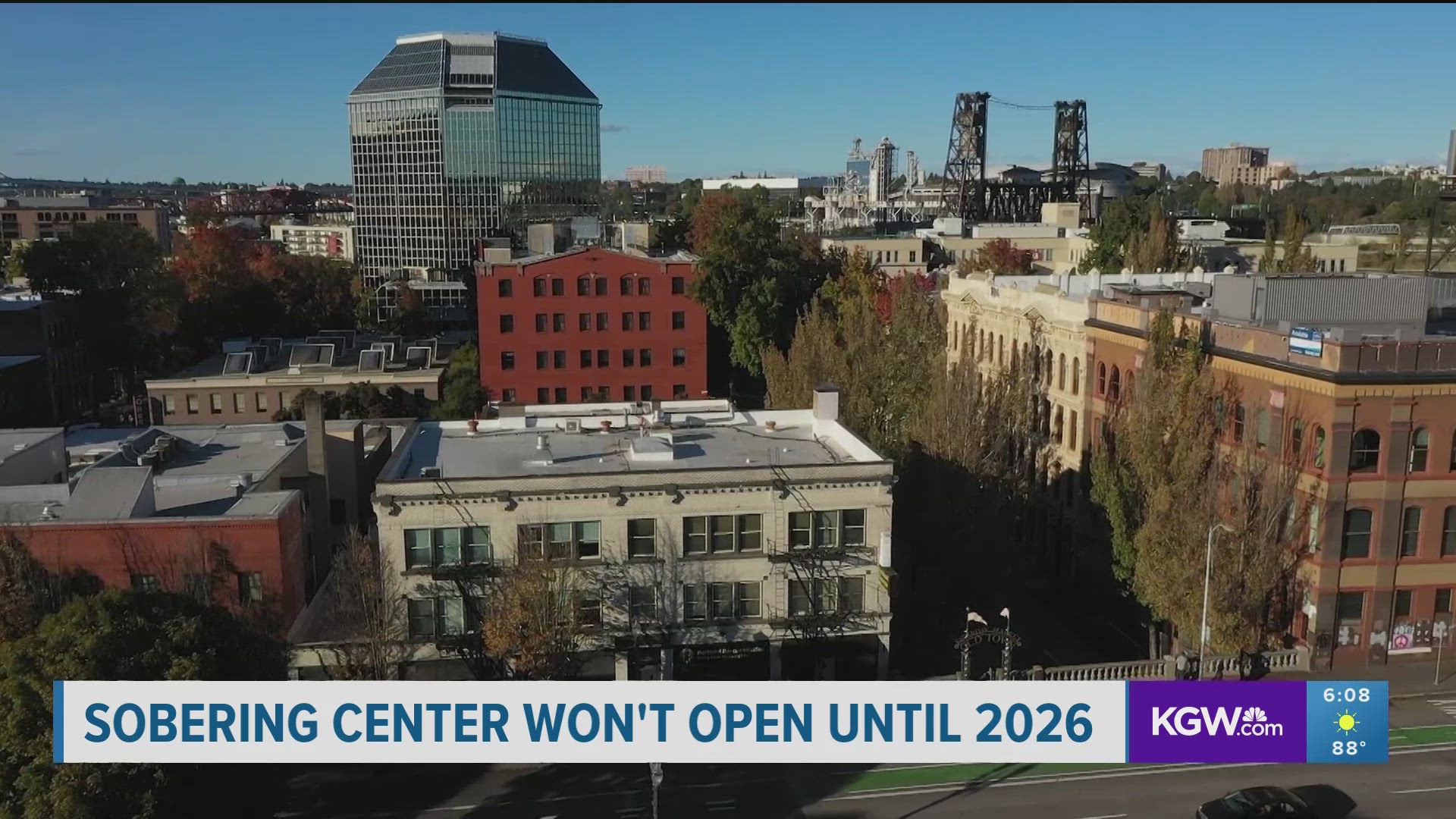PORTLAND, Oregon — Plans for an around-the-clock sobering center in Multnomah County have been pushed back. The proposed facility, where police can take heavily intoxicated people, isn’t expected to open until the fall of 2026.
It’s a frustrating setback for business owner Steven Lien of underU4men, who has seen the drug crisis unfold in downtown Portland.
“Dysfunction. Absolute dysfunction,” said Lien. “The police need a place to drop somebody off. I hear it from the police officers, I hear it from our other community members, and the businesses in downtown are fed up.”
Portland hasn’t had a sobering center since the nonprofit Central City Concern shut down its sobering facility in 2019.
“People are in desperate need. People are dying,” said Chris Albright of Portland. “I’m a recovering drug addict, and people forcing me to get sober saved my life.”
The sobering center will come after Multnomah County’s planned temporary deflection center, set to open September 1. The building on Southeast Sandy Boulevard and Ninth Avenue is a place where police can take people caught with drugs and try to get them help. It’s part of the county’s plan to deal with the rollback of Measure 110, helping steer drug users away from jail into treatment.
“They can come in, get assessed, get connected with services,” explained County Chair Jessica Vega Pederson. About 10 sobering beds will come in the spring of next year.
“I think 10 beds is a really good start. We are expecting to have even more capacity at the permanent location. But 10 beds are more than we have now,” continued Vega Pederson.
Then, the long-awaited sobering center will open in the fall of 2026, providing 35 to 50 beds.
It’s a phased approach, Vega Peterson explained, which incorporates sobriety.
“I think everybody recognizes that we need these things as soon as possible,” she said.
The Portland Metro Chamber, which represents businesses, issued a statement urging the county to move quickly on the sobering center. The Chamber doesn’t think there should be phases; instead, business leaders argued the deflection center and sobering center should be ready to go at the same time.
“If they can implement a program that can save just one life, it’s worth it,” said Gerard Whitecalf, a recovery mentor in Portland. “How would you like it if it was one of your family members who needed the services? Would you be as willing to put it off for another two years?”

